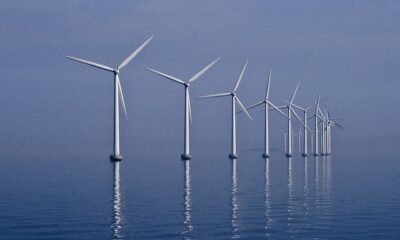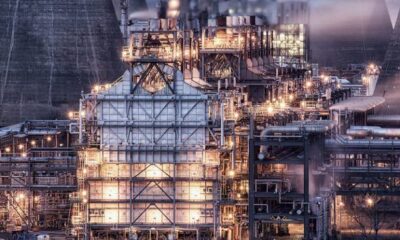

Environment
Cameron’s keynote speech criticised by social enterprises and environmentalists
David Cameron closed the Conservative party conference in Manchester on Wednesday with a keynote speech that gave support to business, as well shale gas extraction by fracking and the controversial HS2 rail line.
Speaking for just short of an hour, the prime minister promised to make the UK “a land of opportunity”, saying that the economy was starting to recover and urged voters to allow the Conservative party to “finish the job” after the 2015 general election.
He also defended business, saying that profit was “not a dirty word”.
However, Cliff Prior, a spokesperson for the Social Economy Alliance – an alliance of co-operatives, universities, thinktanks and charities – argues that Cameron needs to be more specific and define what kind of businesses he wants encourage.
“The people are well ahead on this”, he said.
“A growing proportion of start-ups are social start-ups. Profit is no longer an end in itself for the UK’s best and most sustainable businesses. They are working to nurture their markets and nurture society, protect the environment, and be transparent and accountable.
“Simplistic ‘pro-business’ and ‘anti-business’ labels are useless in this century. The world has moved on. Businesses, consumers and entrepreneurs are creating a new social economy and our leaders need to wake up to this.”
Cameron also made the case for the controversial HS2 rail line. Campaigners and MPs have expressed many concerns over HS2, not least because the cost of the controversial development has been repeatedly revised. Government projections currently say that it will cost around £50 billion, although in August the Institute of Economic Affairs estimated that the cost could rise to as much as £80 billion.
However, Cameron argued that HS2 would bring great benefits to business throughout the country. He said, “Here in Manchester let me say this: when I say a land of opportunity for all I mean everyone – north and south. This country has been too London-centric for far too long. That’s why we need a new north-south railway line.
“HS2 is about bringing north and south together in our national endeavour. Because think of what more we could do with the pistons firing in all parts of our country.”
Cameron also called for plans to make the Humber, “with its wind and wave power,” the centre of clean energy.
However, he also gave his support to the controversial process of fracking, saying, “With its resources under the ground, let’s make Blackpool the centre of Europe for the shale gas industry.”
This is despite determined protests expressing concerns over the environmental dangers of shale gas extraction by fracking, and leading economists and scientists arguing that the shale gas industry will not lower domestic energy bills.
Cameron’s speech made no mention of the issue of climate change, and of the IPCC report published last week that urged government’s to take action to reduce carbon emissions.
Friends of the Earth’s executive director, Andy Atkins, criticised Cameron’s stance, saying, “With scientists warning that we’re racing towards a climate catastrophe, the Prime Minister gave no indication that he’s going to take his foot off the accelerator.
“Cameron’s dangerously muddled energy policy is keeping the nation hooked on increasingly costly fossil fuels, driving away thousands of jobs in Britain’s renewable energy sector and undermining efforts to tackle global warming.”
Further reading:
Balcombe protesters shut down camp – but vow to return if fracking resumes
Ditching HS2 would be ‘disaster’ for British industry
George Osborne: UK should not lead climate change fight
A successful HS2 requires ‘bipartisan’ approach
Conservatism and conservation: why Tories are born to be green


 Environment12 months ago
Environment12 months agoAre Polymer Banknotes: an Eco-Friendly Trend or a Groundswell?

 Features11 months ago
Features11 months agoEco-Friendly Cryptocurrencies: Sustainable Investment Choices

 Features12 months ago
Features12 months agoEco-Friendly Crypto Traders Must Find the Right Exchange

 Energy11 months ago
Energy11 months agoThe Growing Role of Solar Panels in Ireland’s Energy Future





























